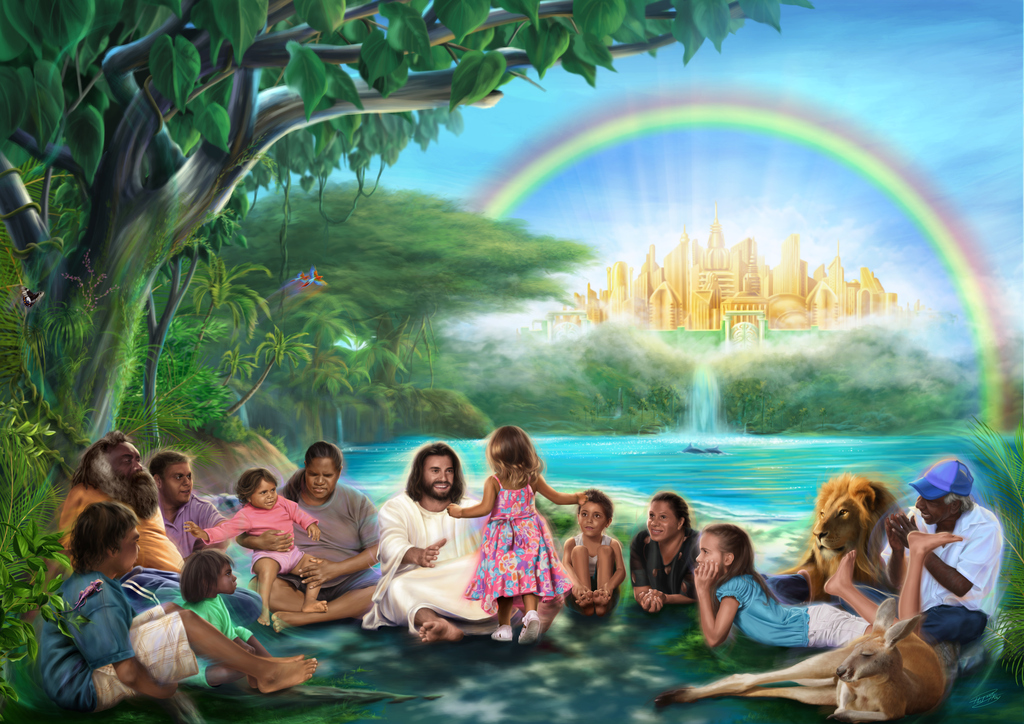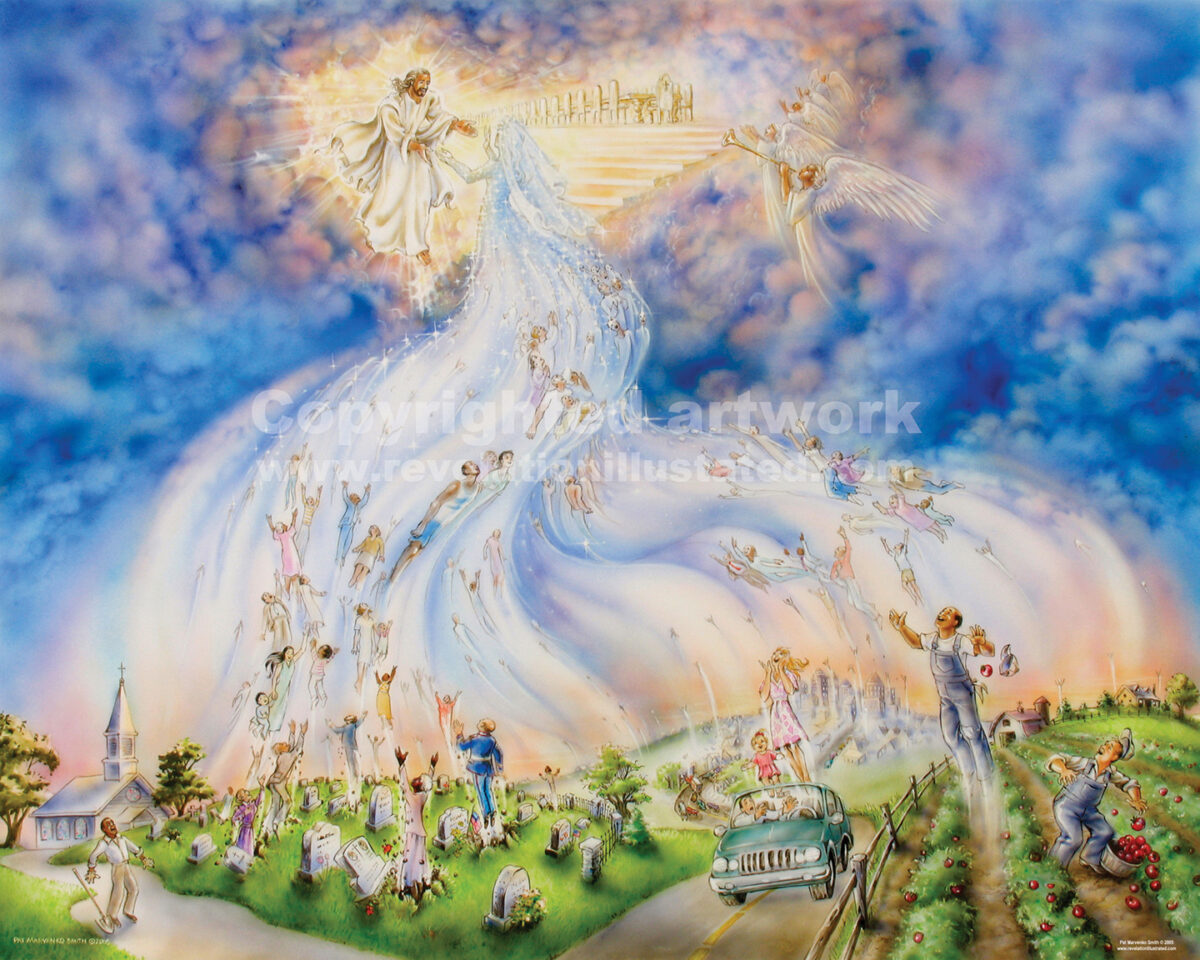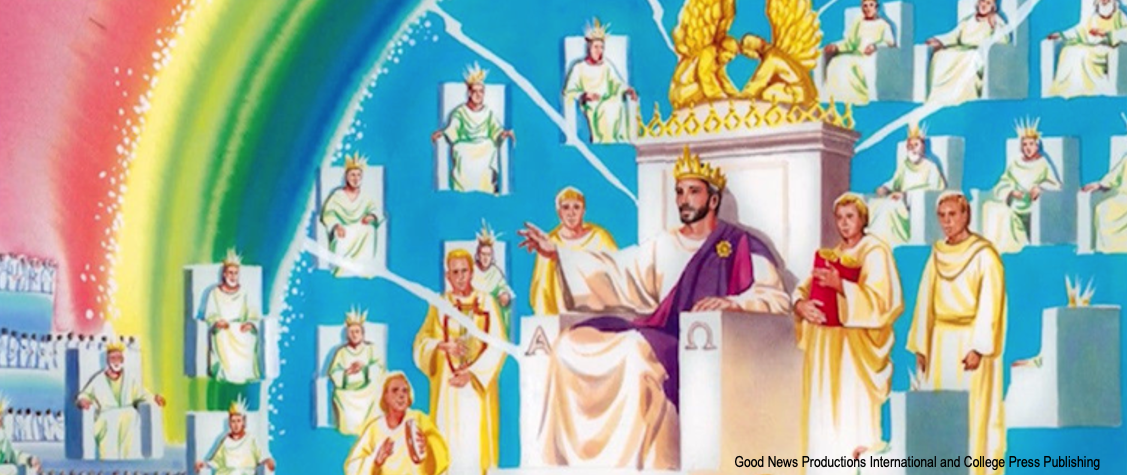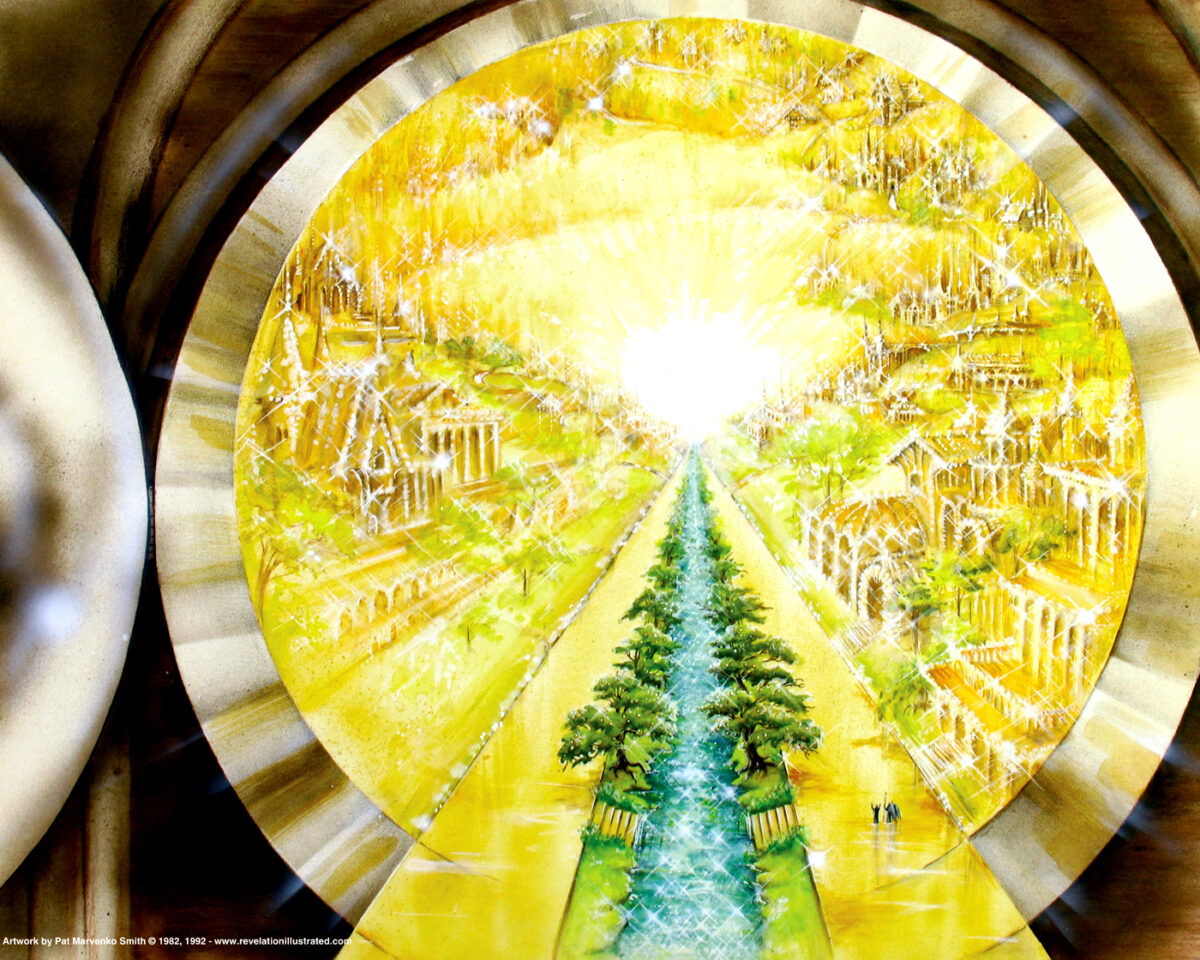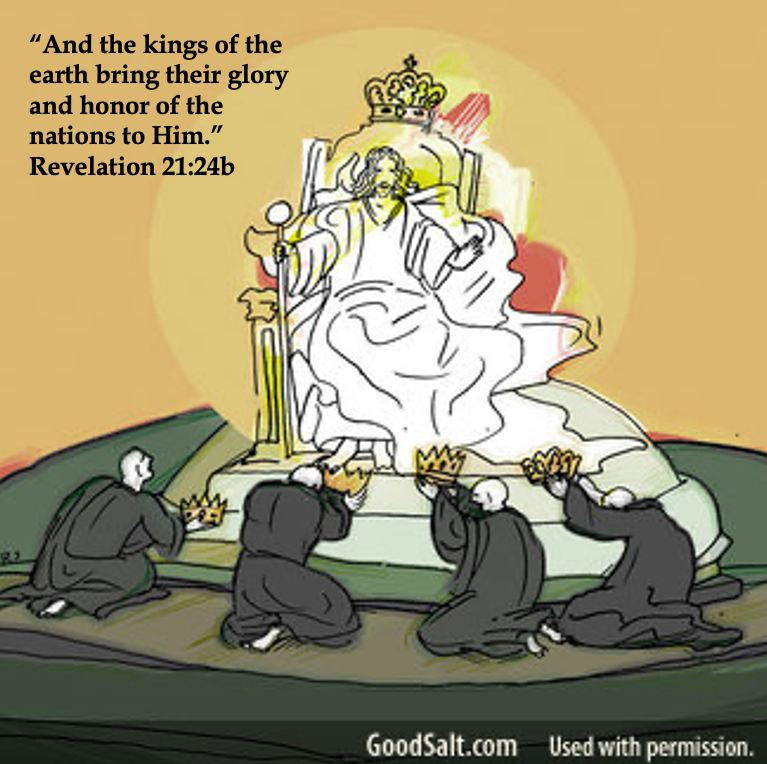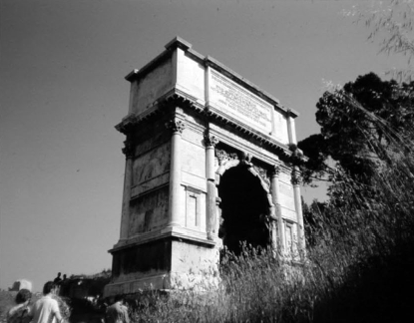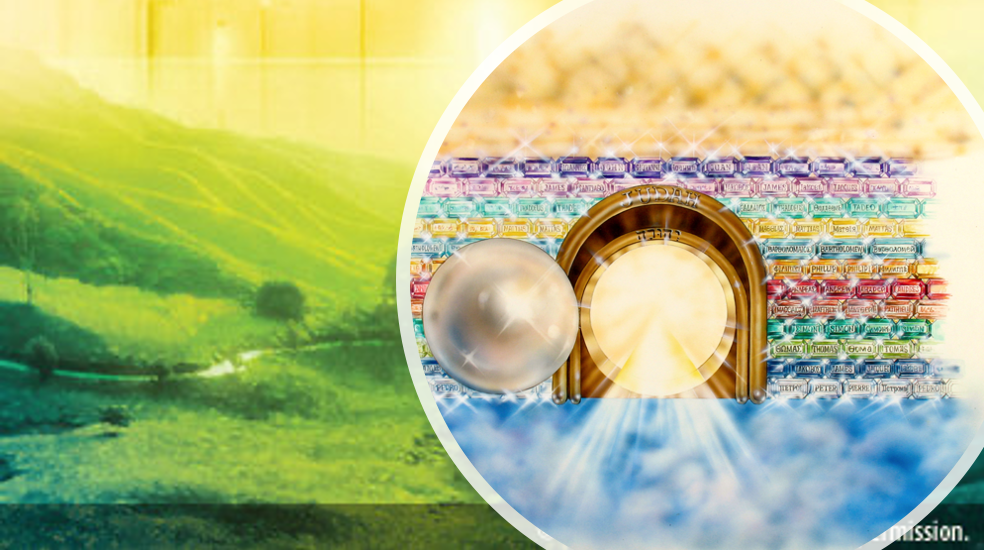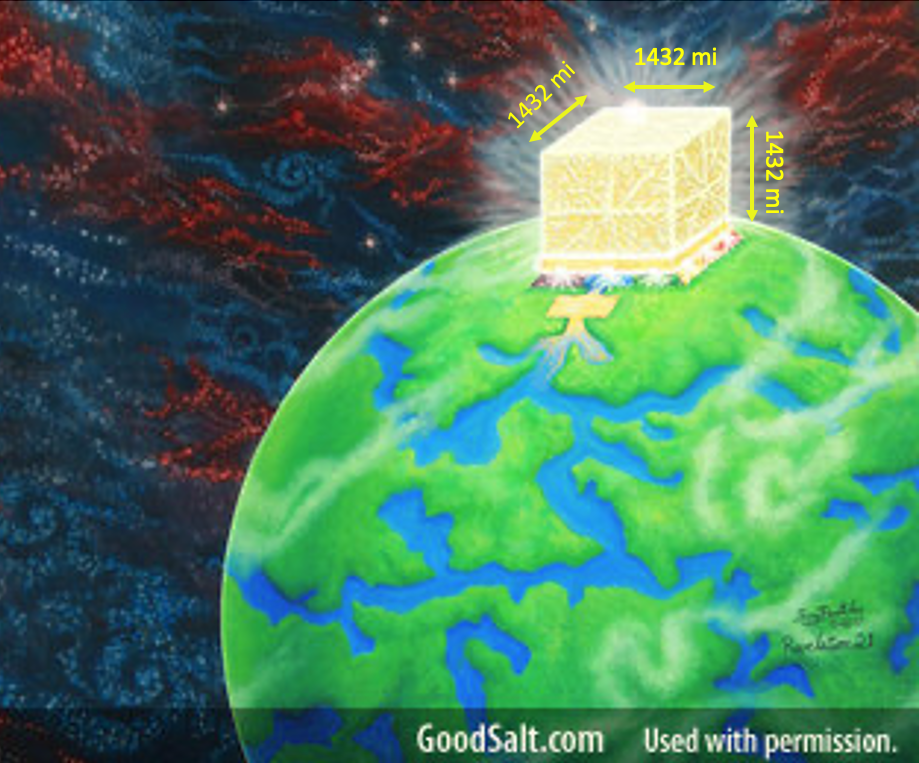“Then he said to me, ‘See that you do not do that. I am your fellow servant, and of your brethren the prophets, and of those who keep the words of this book. Worship God.’” Revelation 22:9
I have known Jesus Christ as my personal Savior for over forty-three years, and yet I still have a lot to learn about what it means to worship Him. Most Christians know they will worship God in heaven, but many of us fail to grasp how thrilling this will be. We may think that worship in heaven will be boring and monotonous.
One reason we don’t look forward to worshiping God in heaven is because of the bad worship experiences we’ve had on earth. We think in heaven we are going to sing a few songs, hear a sermon, eat a snack, and go home, and repeat this monotonous routine throughout eternity. While things on earth can become less interesting over time, including worship services, in heaven focusing on God all the time will be fascinating, not boring! Those of you who know the Lord intimately understand what I am talking about.
The book of Revelation has a lot to teach us about the worship of God. While one of the primary themes of this book is to inform us of future events, we are told at the beginning of Revelation that its main subject is Jesus Christ. “The Revelation of Jesus Christ, which God gave Him to show His servants—things which must shortly take place.” (Revelation 1:1a). The apostle John immediately alerts his readers to the Source of this book’s information when he writes, “The Revelation of [about or from] Jesus Christ.” Jesus Christ is the Giver of this revelation, and He is its MAIN SUBJECT.
As the prophetic events have been chronologically revealed in this book, leading up to the return of Jesus Christ to earth to set up His eternal kingdom, we have learned more and more about the Lord Jesus. Our view of Christ has become clearer as He disclosed more of Himself and His redemptive plan in this book. The more we encounter Jesus in the pages of the book of Revelation, the more we want to worship Him! This is what happened to the apostle John.
After the apostle John saw the original angel who spoke to him (22:6; cf. 1:1) and then heard the voice of the ascended Lord Jesus Christ (22:7), he mistook the angel for the Lord Jesus. “Now I, John, am the one who heard and saw these things. And when I heard and saw, I fell down to worship before the feet of the angel who showed me these things.” (Revelation 22:8). John now resumes addressing his readers in the first person, directly, which he had not done since the first chapter (cf. 1:1, 4, 9). 1 John had personally “heard” and seen “these things” that he had recorded. He was an eyewitness. When John “saw” the angel (22:6) and “heard” the voice of the Lord Jesus Christ (22:7), he may have concluded he was worshipping Christ. 2 The apostle’s strong response further attests to the genuineness of the profound revelations he had received. 3
Immediately the angel corrects John: “Then he said to me, ‘See that you do not do that. I am your fellow servant, and of your brethren the prophets, and of those who keep the words of this book. Worship God.’” (Revelation 22:9). The angel’s words, “See that you do not do that,” remind us thatthe worship of angels is forbidden in God’s Word (cf. Exodus 34:14; Matthew 4:10; Colossians 2:18). No matter how glorious an angel is or exalted a servant of God is – for that matter – they are never to be worshiped.
The angel reminds John (and us), “I am your fellow servant, and of your brethren the prophets, and of those who keep the words of this book.” The reason the angel was not to receive worship is because he is a “fellow servant” of John’s; they both serve God. He also said he served the other “prophets” in addition to John, as well as all believers who “keep” or obey “the words of” the “book” of Revelation.
The angel emphatically says to John, “Worship God!” This is the most appropriate response to all that God has revealed in the book of Revelation. Throughout the book of Revelation, we see that God alone is to be worshiped. In God’s heavenly throne room prior to the beginning of His horrific Tribulation judgments on the earth, the angelic and human inhabitants of heaven are so overwhelmed with God’s holiness, power, and eternality (4:8-10), they fall on their faces saying, “You are worthy, our Lord and God, to receive glory and honor and power; for You created all things, and by Your will they existed and were created.” (4:11).
After the Lamb and Lion, Jesus Christ, takes the scroll containing the seal judgments from the hand of God the Father in heaven’s throne room, the four angelic creatures and redeemed people from “every tribe and tongue and people and nation” worshiped Jesus Christ by singing a new song of praise for His work of redemption (5:8-10). Then an innumerable host of “angels around the throne” now join this group ascribing worth to “the Lamb who was slain” Who deserves “power… riches… wisdom… strength… honor… glory… blessing” to be given to Him at the beginning of His reign on earth (5:11-12). Then every creature, saved and unsaved, angelic, and demonic, will join in giving God the Father(“Him who sits on the throne“) and “the Lamb,” Jesus Christ, “the blessing and honor and glory and power” they deserve (5:13). Then we see the four living creatures and twenty-four elders continue their unceasing worship of God in His heavenly throne room (5:14).
During the interlude between the sixth and seventh seal judgments, the apostle John receives a vision of God’s great mercy involving the salvation of Gentiles and Jews from every nation who are taken to heaven (7:9-17). An innumerable group of saved people from “all nations, tribes, peoples, and tongues” will be in heaven praising God, saying, “Salvation belongs to our God who sits on the throne, and to the Lamb!” (7:9-10). In addition, “11 All the angels stood around the throne and the elders and the four living creatures, and fell on their faces before the throne and worshiped God, 12 saying: ‘Amen! Blessing and glory and wisdom, thanksgiving and honor and power and might, be to our God forever and ever. Amen.” (7:11-12). Imagine being in God’s throne room with an innumerable group of redeemed people from all over the world together with all of God’s angels falling on our faces because we are so overwhelmed with the goodness and greatness of God!
When the seventh trumpet sounded and the inhabitants of heaven announced the future eternal reign of Christ on earth in the past tense as if it has already taken place (11:15), “the twenty-four elders who sat before God on their thrones fell on their faces and worshiped God.” (11:16).
During the last half of the Tribulation when the beast and false prophet blaspheme the true God and blame Him for all the calamities they are experiencing on the earth, an angel will be sent to nonbelieving earth-dwellers saying, “Fear God and give glory to Him, for the hour of His judgment has come; and worship Him who made heaven and earth, the sea and springs of water.” (14:7). They are to“fear God and give glory to Him” because the reason for all the worldwide death and disaster during the last half of the Tribulation is that “the hour of His judgment has come” (14:7a). When people on the earth understand why all the calamities are taking place during the Tribulation, they may be more likely to believe in Jesus for His gift of everlasting life.These earth-dwellers are also to “worship” God because He “made heaven and earth, the sea and springs of water” (14:7b). God is worthy of worship because He is the Creator, and He has the right to judge what He has created.
In Revelation 15, the apostle John has a vision of believers who were martyred during the last half of the Tribulation who are now in God’s throne room in heaven, singing “the song of Moses… and the song of the Lamb, saying: ‘Great and marvelous are Your works, Lord God Almighty! Just and true are Your ways, O King of the nations!’ Who shall not fear You, O Lord, and glorify Your name? For You alone are holy. For all nations shall come and worship before You, For Your judgments have been manifested.’” (15:3-4). It does not matter if the songs are old (“song of Moses”) or new (“song of the Lamb”), the purpose of worship is to “glorify” God for His awesome Person (“Lord God Almighty…You alone are holy”) and His “great and marvelous… works.”
Following the destruction of the great harlot (Rome) which caused the people of the world to grieve deeply and be distressed (18:1-24), we see a much different response to Rome’s destruction in heaven (19:1-10). All the inhabitants of heaven are praising God for what He has done to Rome, “1 saying, ‘Alleluia! Salvation and glory and honor and power belong to the Lord our God! 2 For true and righteous are His judgments, because He has judged the great harlot who corrupted the earth with her fornication; and He has avenged on her the blood of His servants shed by her.’” (19:1-2). The “twenty-four elders” representing the church in heaven (cf. 4:1-4) and “the four living creatures” representing angelic beings (cf. 4:6-8), “fell down and worshiped God who sat on the throne,” crying out, “Amen! Alleluia!” (19:4). In saying “Amen” (lit., “so be it”), they were giving their wholehearted agreement to the praise already given to God.
This last worshipful scene in heaven (19:1-4) which is contrasted with the mourning that will take place on the earth for Rome’s (“Babylon”) destruction (Revelation 18:9-24), reminds us that God is still worthy of praise no matter what we face in life. All God’s decisions are “true and righteous” (19:2) even when a romance does not blossom as we had hoped, or a job interview does not turn out the way we thought it would. It is important to remember that God is worthy of our admiration and trust even when the effects of sin endanger our families, when pain drives us to our wits’ end, or when misfortune is about to push us over the edge. God gives and He takes away (Job 1:21). He is honored when we return to Him, when we release our worries to Him, and when we rest in Him.
From this survey of the book of Revelationwe learn that in the current heaven, everyone worships Jesus Christ, including all the angels and God’s redeemed people. No one says, “Now we’re going to sing two hymns, followed by announcements, and prayer.” The praising of God is not ritual, it is spontaneous. 4
Alcorn writes, “If someone rescued you and your family from terrible harm, especially at great cost to himself, no one need tell you, ‘Better say thank you.’ On your own, you would shower him with praise. Even more will you sing your Savior’s praises and tell of His life-saving deeds.
“In 2003 when Saddam Hussein’s statues were being torn down in Baghdad, a television commentator said something so striking that I wrote it down. He said, ‘These people are used to coming out in the streets and praising Saddam. If they didn’t, they were punished. He had a policy of compulsory adulation.
“God seeks worshipers (John 4:23). But He has no policy of compulsory adulation. His children’s response to Him is voluntary. Once we see God as He really is, no one will need to beg, threaten, or shame us into praising Him. We will overflow in gratitude and praise. We are created to worship God. There’s no higher pleasure. At times we’ll lose ourselves in praise, doing nothing but worshiping Him. At other times we’ll worship Him when we build a cabinet, paint a picture, cook a meal, talk with an old friend, take a walk, or throw a ball.” 5
People all over the world today “are always striving to celebrate – they just lack ultimate reasons to celebrate (and therefore find lesser reasons). As Christians, we have those reasons – our relationship with Jesus and the promise of heaven.” 6
In the final stage of heaven when King Jesus rules the new heaven and new earth from the New Jerusalem, we read, “3 Behold, the tabernacle of God is with men, and He will dwell with them, and they shall be His people. God Himself will be with them and be their God.” (Revelation 21:3). In this final stage of heaven, believers will enjoy a new intimacy with God which is impossible in a world where sin and death are still present. God will finally “tabernacle” or dwell among His cleansed and forgiven people, and they will experience perfect fellowship with Him on the new earth.
I want to conclude with Randy Alcorn’s description of worship in this final stage of heaven on the new earth:
“Does this excite you? If it doesn’t, you’re not thinking correctly.
“I find it ironic that many people stereotype life in Heaven as an interminable church service. Apparently, church attendance has become synonymous with boredom. Yet meeting God – when it truly happens – will be far more exhilarating than a great meal, a poker game, hunting, gardening, mountain climbing, or watching the Super Bowl. Even it if were true (it isn’t) that church services must be dull, there will be no church services in Heaven. The church (Christ’s people) will be there. But there will be no temple, and as far as we know, no services (Revelation 21:22).
“Will we always be engaged in worship? Yes and no. If we have a narrow view of worship, the answer is no. But if we have a broad view of worship, the answer is yes. As Cornelius Venema explains, worship in Heaven will be all-encompassing:” 7
“No legitimate activity of life – whether in marriage, family, business, play, friendship, education, politics, etc. – escapes the claims of Christ’s kingship… Certainly those who live and reign with Christ forever will find the diversity and complexity of their worship of God not less, but richer, in the life to come. Every legitimate activity of new creaturely life will be included within the life of worship of God’s people.” 8
Alcorn then says, “Will we always be on our faces at Christ’s feet, worshiping Him? No, because the Scripture says we’ll be doing many other things – living in dwelling places, eating, and drinking, reigning with Christ, working for Him. Scripture depicts people standing, walking, traveling in and out of the city, and gathering at feasts. When doing these things, we won’t be on our faces before Christ. Nevertheless, all that we do will be an act of worship. We’ll enjoy full and unbroken fellowship with Christ. At times this will crescendo into greater heights of praise as we assemble with the multitudes who are also worshiping Him.
“Worship involves more than singing and prayer. I often worship God while reading a book, riding a bike, or taking a walk. I’m worshiping Him now as I write. Yet too often I’m distracted and fail to acknowledge God along the way. In Heaven, God will always be first in my thinking.” 9
“…Nothing is more fascinating than God. The deeper we probe into His being, the more we want to know. One song puts it this way: ‘As eternity unfolds, the thrill of knowing Him will grow.’” 10
“We’ll never lose our fascination for God as we get to know Him better. The thrill of knowing Him will never subside. The desire to know Him better will motivate everything we do. To imagine that worshiping God could be boring is to impose on Heaven our bad experiences of so-called worship. Satan is determined to make church boring, and when it is, we assume Heaven will be also. But church can be exciting, and worship exhilarating. That’s what it will be in Heaven. We will see God and understand why the angels and other living creatures delight to worship Him.”
“Have you known people who couldn’t be boring if they tried? Some people are just fascinating. It seems I could listen to them forever. But not really. Eventually, I’d feel as if I’d gotten enough. But we can never get enough of God. There’s no end to what He knows, no end to what He can do, no end to who He is. He is mesmerizing to the depths of His being, and those depths will never be exhausted. No wonder those in Heaven always redirect their eyes to Him – they don’t want to miss anything.” 11
J. I. Packer puts it this way: “Hearts on earth may say in the course of a joyful experience, ‘I don’t want this ever to end.’ But invariably it does. The hearts of those in heaven say, ‘I want this to go on forever.’ And it will. There is no better news than this.” 12
Prayer: Gracious God the Father, God the Son, and God the Holy Spirit, we pause right now to thank You for revealing to us future certainties in the book of Revelation which cause us to pause and worship You, our Triune God. Forgive us Lord God for sometimes getting caught up in the moment, like John did, and forgetting the One who deserves our full affection. We can so easily focus on the Gift rather than the Giver when we receive Your incredible blessings. Thank You for rebuking us, like the angel rebuked John, when we take our eyes off You, so we can redirect our focus onto You alone. Regardless of what we face on earth, You are always worthy of our admiration and praise. Your work in creation and redemption increases our sense of Your goodness and grace. Thank You for our eternal salvation. Thank You for the everlasting hope we have in the Lord Jesus Christ who died in our place and rose from the dead so whoever believes in Him should not perish but have everlasting life both now and forever. Until we see You face to face, help us to live lives that worship and exalt You for who You are and what You have done. In the matchless name of the Lord Jesus Christ, we pray. Amen.
ENDNOTES:
1. Tom Constable, Notes on Revelation, 2017 Edition, pg. 252.
2. Bob Vacendak; Robert Wilkin; J. Bond; Gary Derickson; Brad Doskocil; Zane Hodges; Dwight Hunt; Shawn Leach; The Grace New Testament Commentary: Revised Edition (Grace Evangelical Society, Kindle Edition, 2019), pg. 1589.
3. Constable, pg. 253.
4. Randy Alcorn, Heaven: A Comprehensive Guide to Everything the Bible Says About Our Eternal Home (Tyndale House Publishers, 2004 Kindle Edition), pg. 285.
5. Ibid.
6. Ibid., pg. 283.
7. Ibid., pg. 284.
8. Ibid., cites Cornelius P. Venema, The Promise of the Future (Trowbridge, UK: Banner of Truth, 2000), pg. 478.
9. Alcorn, pg. 284.
10. Ibid., pg. 286 cites John G. Elliot, “The Praise Goes On and On” (Grapevine, Tex.: Galestorm Music, n. d.).
11. Alcorn, pg. 286.
12. Ibid., pg. 287.

